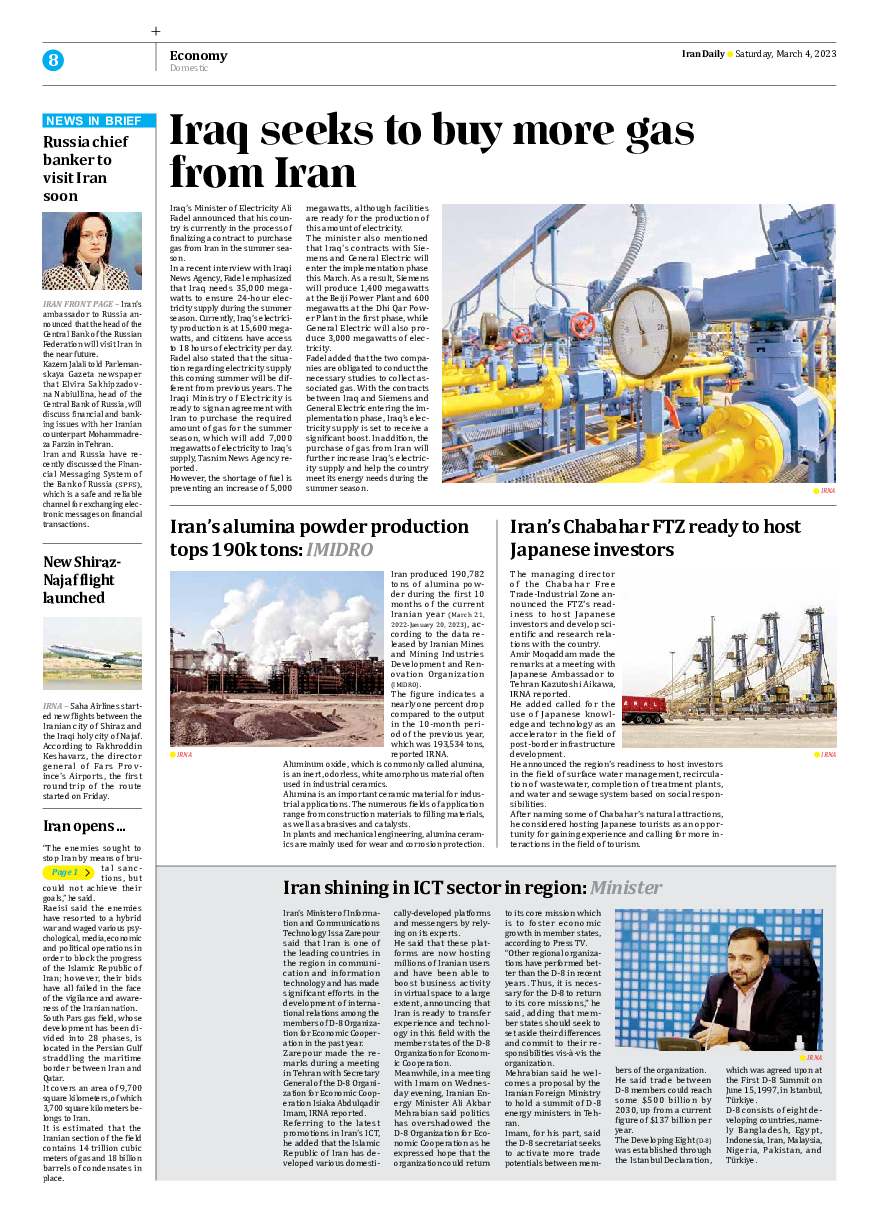
Iran shining in ICT sector in region: Minister
Iran’s Minister of Information and Communications Technology Issa Zarepour said that Iran is one of the leading countries in the region in communication and information technology and has made significant efforts in the development of international relations among the members of D-8 Organization for Economic Cooperation in the past year.
Zarepour made the remarks during a meeting in Tehran with Secretary General of the D-8 Organization for Economic Cooperation Isiaka Abdulqadir Imam, IRNA reported.
Referring to the latest promotions in Iran’s ICT, he added that the Islamic Republic of Iran has developed various domestically-developed platforms and messengers by relying on its experts.
He said that these platforms are now hosting millions of Iranian users and have been able to boost business activity in virtual space to a large extent, announcing that Iran is ready to transfer experience and technology in this field with the member states of the D-8 Organization for Economic Cooperation.
Meanwhile, in a meeting with Imam on Wednesday evening, Iranian Energy Minister Ali Akbar Mehrabian said politics has overshadowed the D-8 Organization for Economic Cooperation as he expressed hope that the organization could return to its core mission which is to foster economic growth in member states, according to Press TV.
“Other regional organizations have performed better than the D-8 in recent years. Thus, it is necessary for the D-8 to return to its core missions,” he said, adding that member states should seek to set aside their differences and commit to their responsibilities vis-à-vis the organization.
Mehrabian said he welcomes a proposal by the Iranian Foreign Ministry to hold a summit of D-8 energy ministers in Tehran.
Imam, for his part, said the D-8 secretariat seeks to activate more trade potentials between members of the organization.
He said trade between D-8 members could reach some $500 billion by 2030, up from a current figure of $137 billion per year.
The Developing Eight (D-8) was established through the Istanbul Declaration, which was agreed upon at the First D-8 Summit on June 15, 1997, in Istanbul, Türkiye.
D-8 consists of eight developing countries, namely Bangladesh, Egypt, Indonesia, Iran, Malaysia, Nigeria, Pakistan, and Türkiye.







